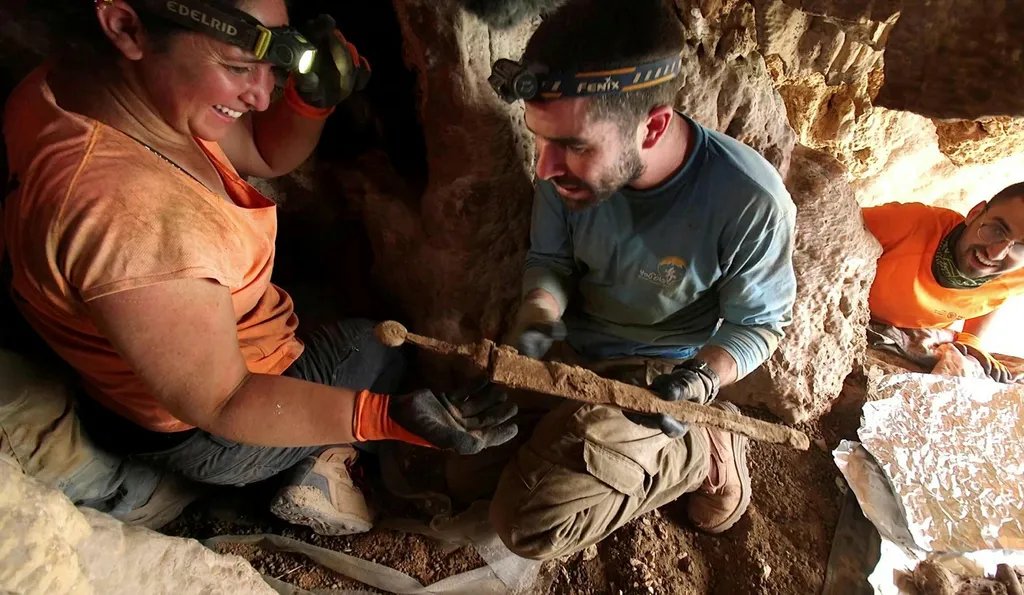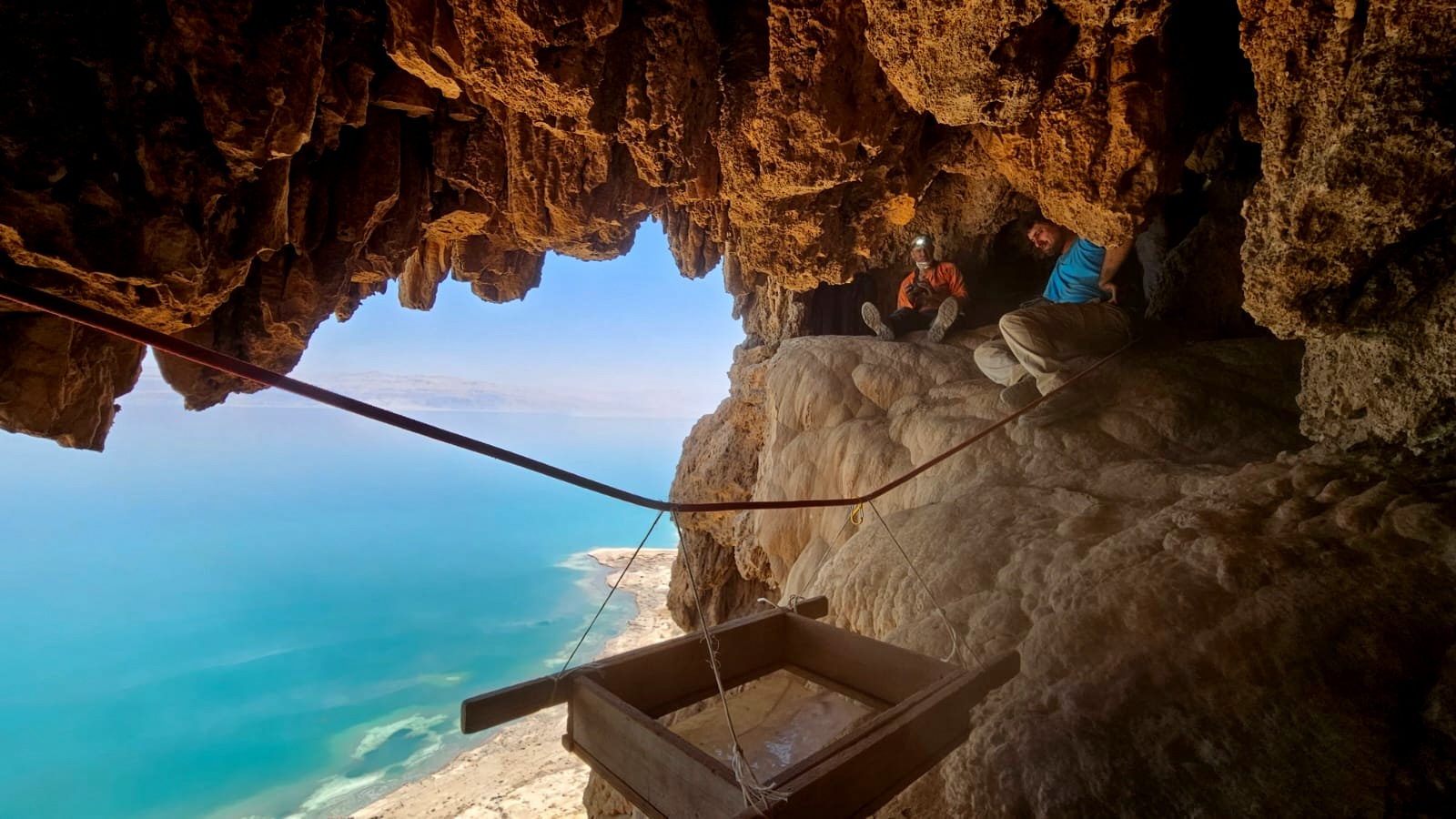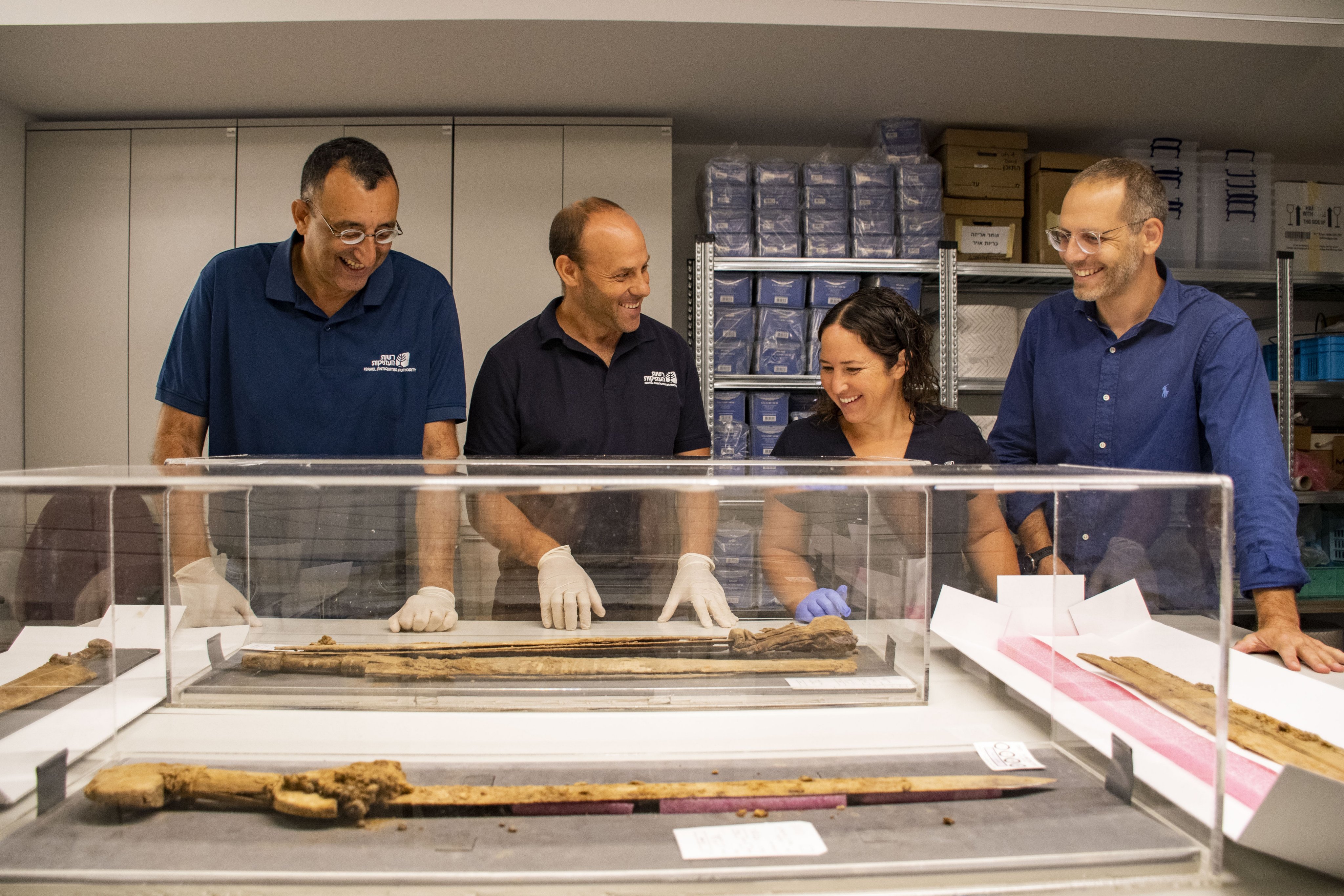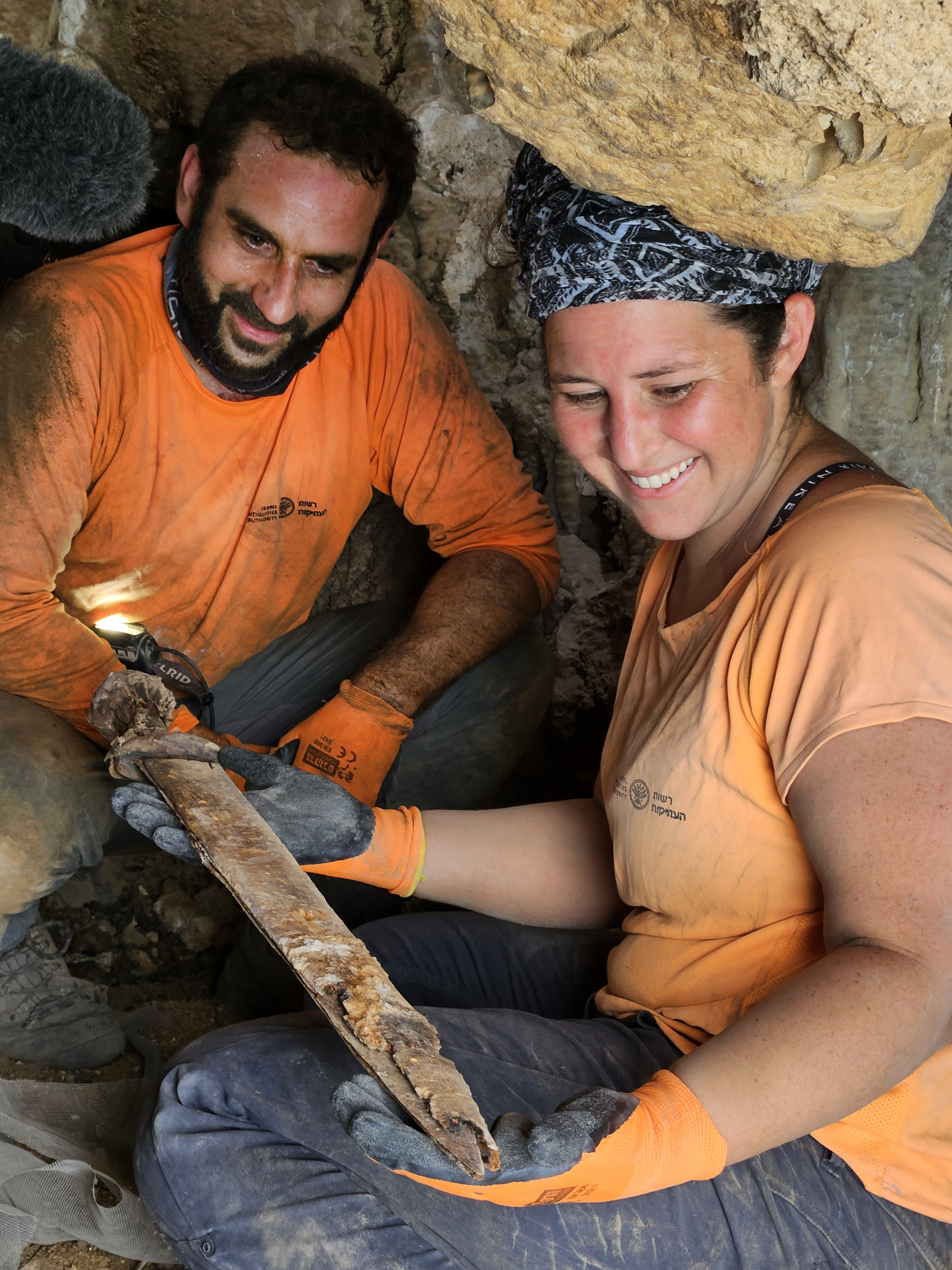Fri 08 September 2023:
Four Roman-era swords, with wooden and leather hilts and scabbards and steel blades wonderfully preserved after 1,900 years in a desert cave, were discovered in a recent excavation near the Dead Sea by Israeli archaeologists, according to the Israel Antiquities Authority.
“This is a dramatic and exciting discovery, touching on a specific moment in time,” Eli Escusido, director of the Israel Antiquities Authority, said in a statement. “This is a unique time capsule, whereby fragments of scrolls, coins from the Jewish Revolt, leather sandals, and now even swords in their scabbards, sharp as if they had only just been hidden away today.”
While scoping the cave’s upper level, archaeologist Asaf Gayer from Ariel University spotted an extremely well-preserved Roman pilum or javelin – a shafted weapon – in a deep narrow crevice.
He also discovered pieces of wood in an adjacent niche that turned out to be parts of the swords’ scabbards.
Returning to the cave at a later time, researchers conducted a “meticulous survey” of all the crevices and found the four Roman swords in an almost inaccessible crevice on the cave’s upper level.
The swords were found to be “exceptionally well preserved” and three of the iron blades were still inside their wooden scabbards.
Researchers also found leather strips as well as wooden and metal parts fashioned into handles for the blades.
“The length of the blades of three swords was 60-65 cm, their dimensions identifying them as Roman spatha swords, and the fourth one was shorter with c. 45 cm long blade, identified as a ring-pommel sword,” the IAA said in a statement.
The swords were dated using typology and have not yet been radiocarbon dated.
The discovery was made as part of the antiquities authority’s Judean Desert Survey, which attempts to study and dig caverns near the Dead Sea, as well as protect scrolls and other valuable items before looters can take them.
The desert caves’ chilly, arid, and steady temperature has allowed for extraordinary preservation of organic remains, including hundreds of ancient parchment fragments known as the Dead Sea Scrolls.
“The hiding of the swords and the pilum in deep cracks in the isolated cave north of En Gedi, hints that the weapons were taken as booty from Roman soldiers or from the battlefield, and purposely hidden by the Judean rebels for reuse,” said Eitan Klein, one of the directors of the survey project.
“Obviously, the rebels did not want to be caught by the Roman authorities carrying these weapons. We are just beginning the research on the cave and the weapon cache discovered in it, aiming to try to find out who owned the swords, and where, when, and by whom they were manufactured,” Dr Klein said.
Scientists are conducting additional research to “pinpoint” the exact historical event that may have resulted in the storage of these weapons in the cave.
Further excavation of the cave has discovered artifacts dating back to the Chalcolithic period, some 6,000 years ago.
SOURCE: INDEPENDENT PRESS AND NEWS AGENCIES
______________________________________________________________
FOLLOW INDEPENDENT PRESS:
TWITTER (CLICK HERE)
https://twitter.com/IpIndependent
FACEBOOK (CLICK HERE)
https://web.facebook.com/ipindependent
Think your friends would be interested? Share this story!










